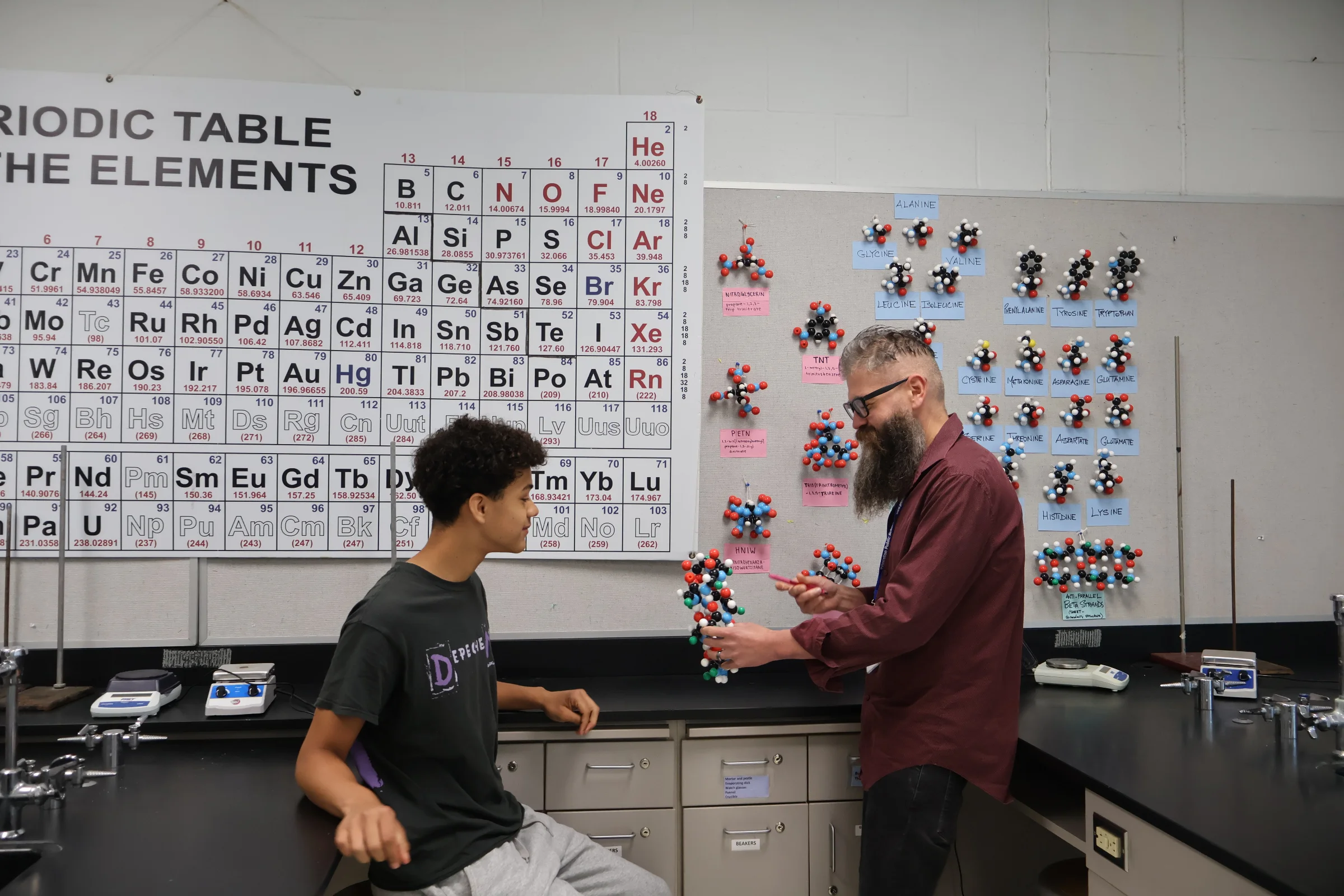PHS chemistry teacher Matthew Krip joined PHS in 2024 after 13 years of teaching chemistry and biology around New Jersey. He began his educational career at two alternative schools: Newark Innovation Academy and later Newark Leadership Academy. He then transitioned to teaching at Scotch Plains-Fanwood High School, a suburban public school.
“In Newark I had the privilege of teaching the marginalized in our society through alternative programs ... Scotch Plains, however, was a distinctly middle-class experience,” said Krip.
Though he valued that experience, Krip says he feels more at home at Princeton High School because of the way PHS’s rigorous curriculum supports its students’ intellectual growth.
Krip himself had a unique educational background: he did not have a traditional high school experience and also only developed an interest in chemistry during college, after hating the subject in high school.
“I got kicked out of my grammar school [before] high school because … it was a religious school, and I asked too many questions. My parents didn’t want me to be in the public high school in Jersey City, so they signed me up for homeschooling through VHS tapes [of] teachers from Florida ... I basically homeschooled myself with VHS tapes,” said Krip.
Krip holds two masters degrees in philosophy and chemistry, along with his bachelor’s degree in biology. He is currently taking classes on biophysics, an interdisciplinary science which uses physics to explain biological phenomena, through Princeton University’s Continuing Education Program. He brings his passions for philosophy and chemistry into the classroom too.
“[There are] students ... [who] have a prejudice that anything that comes in front of them was made by someone or someone put it together. And so we’re getting right at the core of some really good, intense philosophy. That prejudice, it’s filled with hubris, because every single object in reality is held together by these attractions that we investigate in chemistry,” said Krip.
He tries to show this connection by creating new lessons that combine real-world applications and the more conceptual aspects of chemistry, such as a project on the Flint Water Crisis.
“I use a lot of online tools to convey feedback, small groups and discussions, and I like making puzzles out of things and using lots of media,” said Krip. “There is this alternating rhythm of introducing a theme, making sense of it, working through different problems, applying the concepts and then bringing in the math.”
In the remainder of his career, Krip hopes to bridge the large gap he believes exists between the sciences and humanities, by continuing to showcase the overlaps between philosophy and chemistry, and by possibly introducing a new biophysics courses at PHS too.
“I am free to be myself and teach ... which is an incredible privilege for me. Hence, why I am absolutely driven to use every opportunity I have to honor this in reference to my calling and this community,” said Krip.
